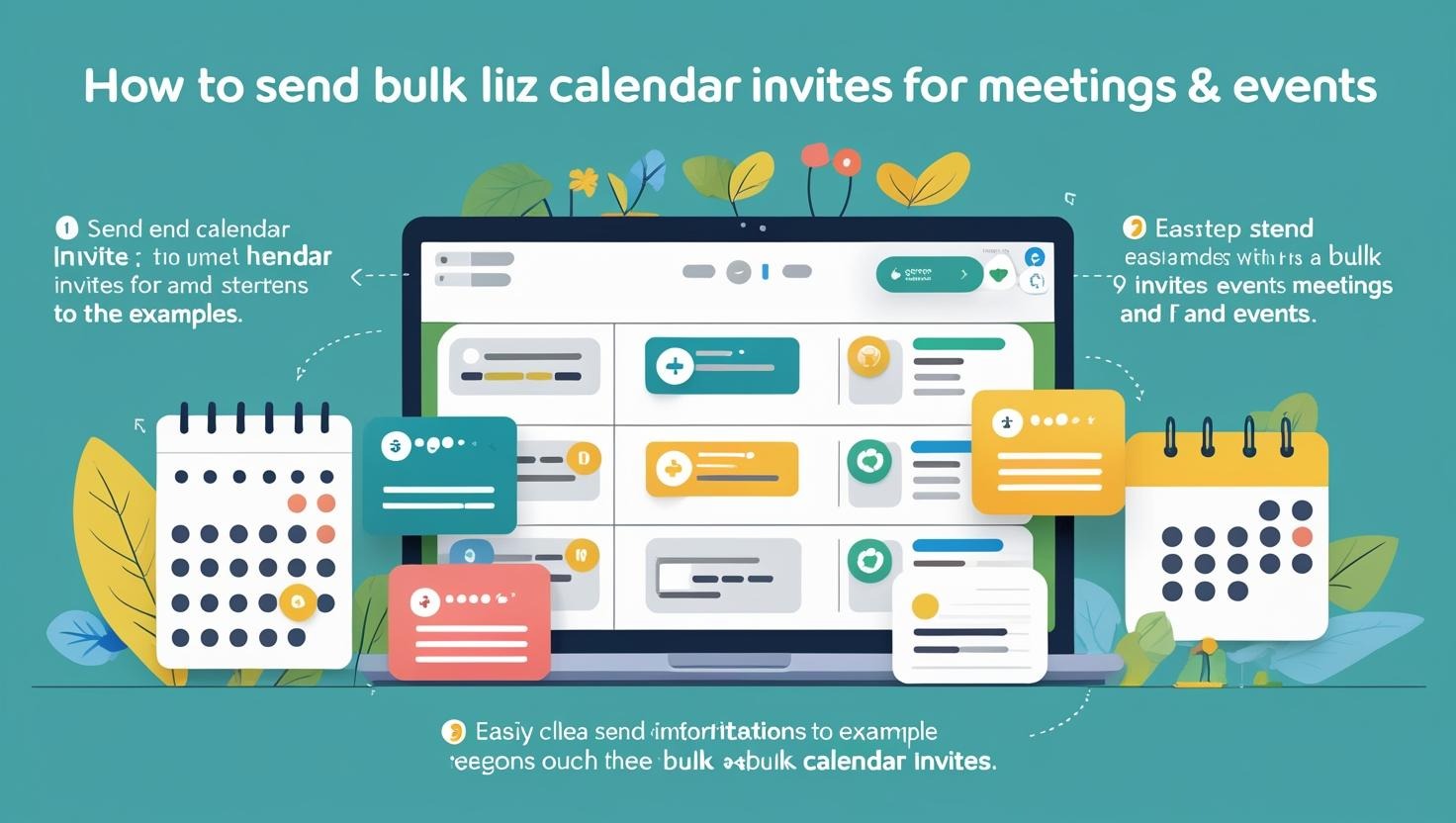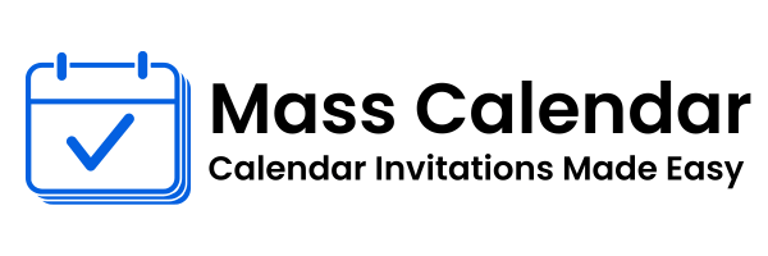Your End-to-End Guide to Mass Calendar Invites for Events, Trainings, and Webinars
Time is a finite resource. When an organizer spends hours copying email addresses, they deplete that resource before the meeting even begins. The antidote is a structured approach to send bulk calendar invites that turns administrative chaos into automated clarity. This guide dissects every stage—from defining objectives to measuring engagement—so you can run large-scale events without drowning in manual effort.
BLOG
6/17/20252 min read


Time is a finite resource. When an organizer spends hours copying email addresses, they deplete that resource before the meeting even begins. The antidote is a structured approach to send bulk calendar invites that turns administrative chaos into automated clarity. This guide dissects every stage—from defining objectives to measuring engagement—so you can run large-scale events without drowning in manual effort.
1. Why Bulk Scheduling Beats Traditional Email Blasts
Plain-text announcements lack two critical features: automatic reminders and real-time updates. A bulk calendar invite embeds those capabilities directly into participants’ schedules. Attendees receive pop-ups, mobile alerts, and quick links—mechanisms that drastically increase turnout.
2. Anatomy of a High-Performing Calendar Invite
Event Identity – Title plus a one-sentence value proposition.
Precise Timing – Start, end, and a brief mention of expected run-time.
Location or Access Link – One-click entry for virtual or hybrid sessions.
Purpose-Driven Agenda – Three to four bullet points of outcomes.
Supplementary Resources – Slide decks, pre-reads, or forms.
Building each component up front minimizes follow-up messages after you send bulk meeting invites.
3. The Stepwise Process for Mass Scheduling
Collect your email universe from CRM, registration forms, or team rosters.
Clean the list: remove duplicates, fix typos, respect opt-outs.
Segment logically—for example, breakout tracks vs. keynote.
Draft once, reuse many: a templated description streamlines future events.
Proofread ruthlessly: grammar errors can erode trust.
Dispatch—one click to send mass calendar invites, locking the date for everyone.
4. Managing Time-Zone Complexities
Global audiences demand sensitivity to local clocks. Most platforms auto-convert when you schedule in your own zone, but confirm accuracy by spot-checking at least three distant cities. Doing so ensures your mass calendar invite lands at a workable hour for all.
5. Privacy and Compliance Corner
Blind vs. visible attendees: If confidentiality matters, hide the list.
Legal disclaimers: Include terms if your session is recorded.
Data-handling permissions: Make opt-out options clear.
Respecting these rules keeps the spotlight on your content, not on compliance headaches.
6. Keeping Recipients Engaged Pre-Event
After you send bulk meeting invite messages, engagement doesn’t stop. Consider light-touch nudges:
“See you tomorrow—bring your questions!”
A quick emoji-laden reminder 24 hours out
One-page cheat-sheet recaps sent via follow-up email
These minimal touches convert tentative RSVPs into solid attendance.
7. Post-Event Follow-Through
Your mission isn’t complete when the session ends. A timely after-action roundup cements value:
Recording link for those who missed it
Survey: two or three questions gauge satisfaction
Next-steps invitation for upcoming topics
Because the original bulk meeting invites are part of the calendar history, participants can easily locate recaps alongside the event entry.
8. Performance Metrics That Matter
Track at least three data points:
Acceptance rate – Indicator of relevance.
Attendance vs. acceptance gap – Measures reminder effectiveness.
Survey response quality – Reflects content resonance.
Even without advanced dashboards, manual tallies reveal whether your strategy to send mass meeting invites is bearing fruit.
Conclusion
From massive webinars to recurring training cohorts, effective scheduling boils down to a repeatable framework: clear objectives, accurate lists, compelling agendas, and transparent follow-through. Once mastered, the ability to send bulk calendar invite messages becomes a cornerstone skill—freeing organizers to focus on delivering value rather than wrangling logistics.
MassCalendar.in
Send Bulk & Mass Calendar Invites Instantly
CONTACT
Meetings
+44 (0) 203 916 5117
© 2025. All rights reserved.
Help?
